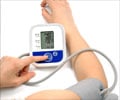Dying of a broken heart? the university of Arizona study explores the effects of grief on cardiac health
- The University of Arizona conducted a study on the impact of grief on mental and physical well-being, specifically focusing on heart function
- The researchers found that intense grief can lead to a significant increase in blood pressure, suggesting that grief may be a potential risk factor for cardiac events
- The study revealed a correlation between the severity of grief and a heightened response to systolic blood pressure
Takotsubo cardiomyopathy, or broken-heart syndrome
Go to source).
The study, published in the journal Psychosomatic Medicine, establishes a correlation between the severity of grief and elevated response to systolic blood pressure.
Mary-Frances O'Connor, an associate professor of psychology at University of Arizona specializing in grief and the senior author of the study, explained that the concept of "dying of a broken heart" after the loss of a loved one served as the inspiration behind their research.
Previous epidemiological studies have already identified an increased risk of mortality following the death of a loved one. In this study, O'Connor and her colleagues explored blood pressure as a potential contributing factor.
The study involved 59 individuals who had recently experienced the loss of a close loved one. "We wanted to examine the cardiovascular effects of grief during that vulnerable period within the first year after the loss," said Roman Palitsky, the lead study author who was a Ph.D. student at University of Arizona during the study and currently serves as the director of spiritual health research programs at Emory University Woodruff Health Sciences Centre.
Each participant engaged in a 10-minute conversation with the researchers, during which they were requested to recount an instance when they experienced profound solitude following the loss of a loved one. Subsequently, the researchers assessed the participant's blood pressure levels.
Grief Awareness: Putting Hearts on the Road to Recovery
Following the recollection of grief, the participants experienced an increase in systolic blood pressure, which represents the pressure exerted by the heart on the arteries during each heartbeat.On average, systolic blood pressure increased by 21.1 millimeters of mercury from the initial level, equivalent to the increase typically observed during moderate physical activity.
Among the group of 59 participants, those displaying the most severe symptoms of grief exhibited the largest elevation in blood pressure during the grief recall task.
"This means that it isn't just the death of a loved one that impacts the heart, but our emotional response to loss that is affecting our heart," O'Connor emphasized.
The findings of the study are valuable for clinicians, as they demonstrate that individuals experiencing a bereavement are at a higher risk of hypertension and other heart-related problems. O'Connor recommended that psychologists and therapists encourage grieving clients to undergo regular medical checkups, as the caregivers often neglect their own healthcare while caring for a dying loved one.
Progressive Muscle Relaxation for Grief: A Promising Intervention
In her lab at the Department of Psychology, Dr. O'Connor conducts research focused on Grief, Loss, and Social Stress. One intervention she explores is known as "progressive muscle relaxation," which involves instructing grieving individuals to intentionally tense and then release the major muscle groups in their bodies.Dr. O'Connor highlights the benefits of this intervention, which targets the physical aspect of grief and helps manage it while reducing stress levels. "I am constantly searching for interventions that address the physical and medical aspects of grieving, in addition to the emotional side," she added.
Reference:
- Takotsubo cardiomyopathy, or broken-heart syndrome - (https://pubmed.ncbi.nlm.nih.gov/17420797/)
Source-Medindia
















